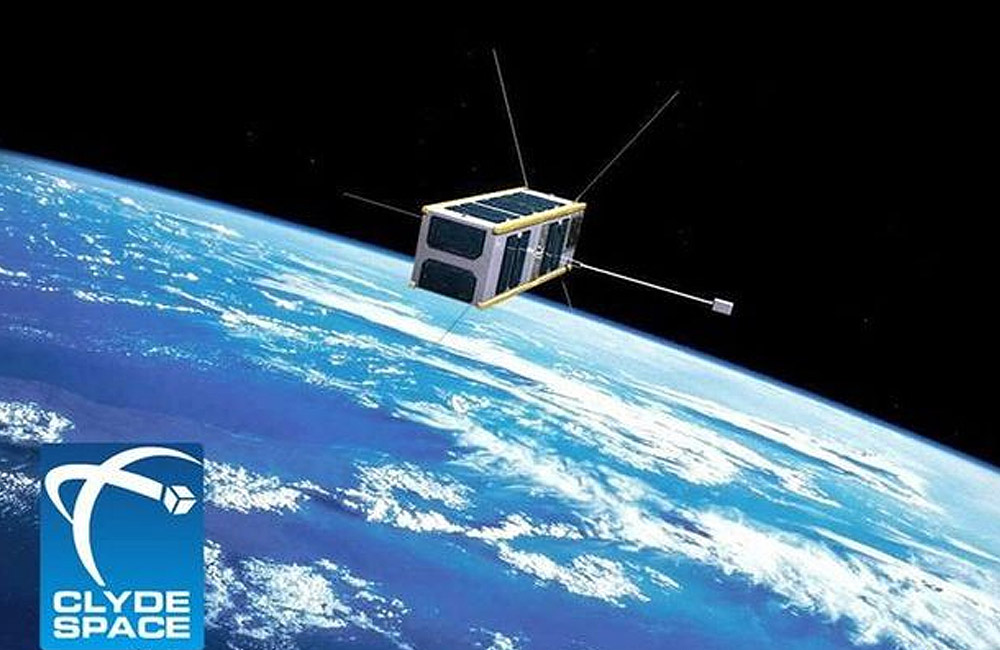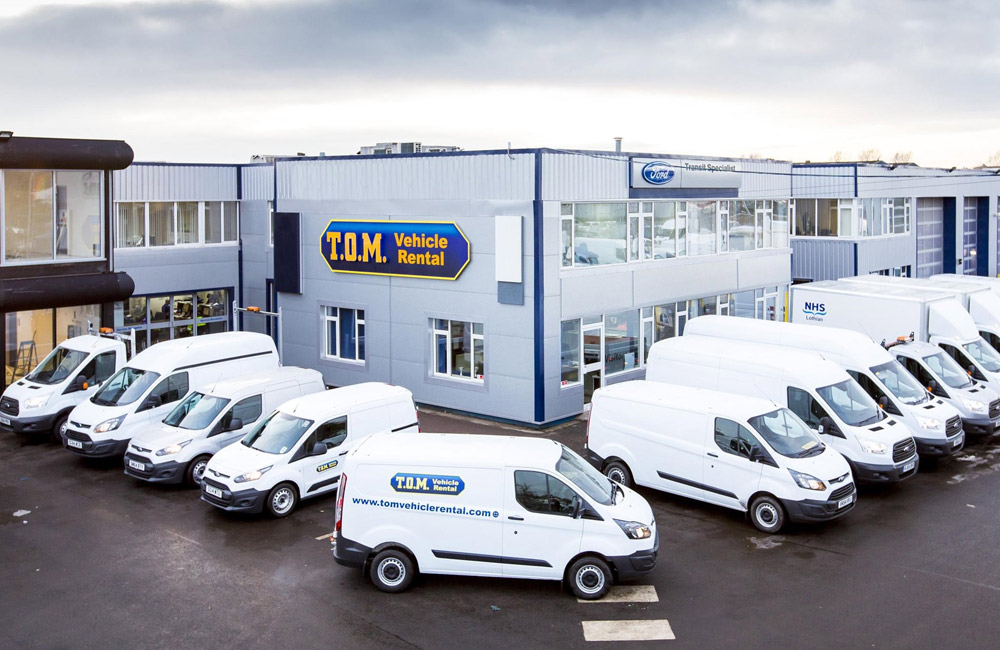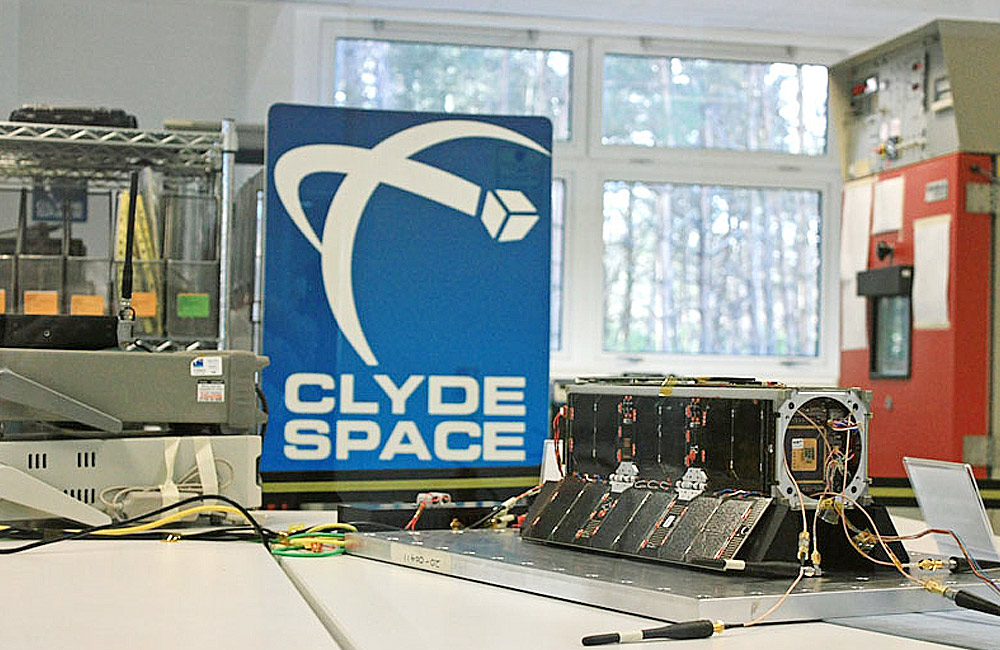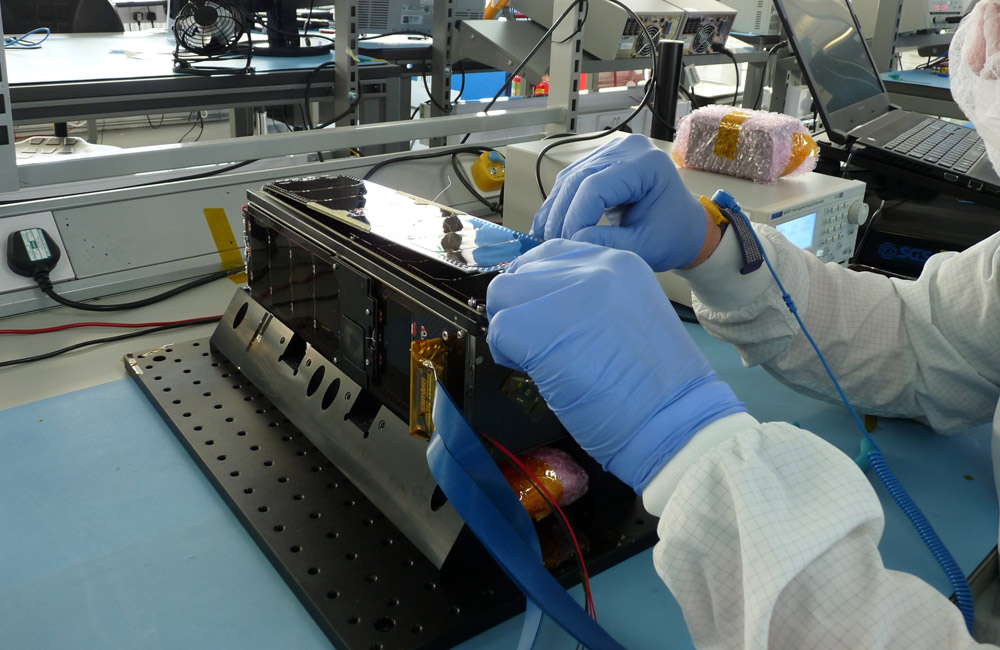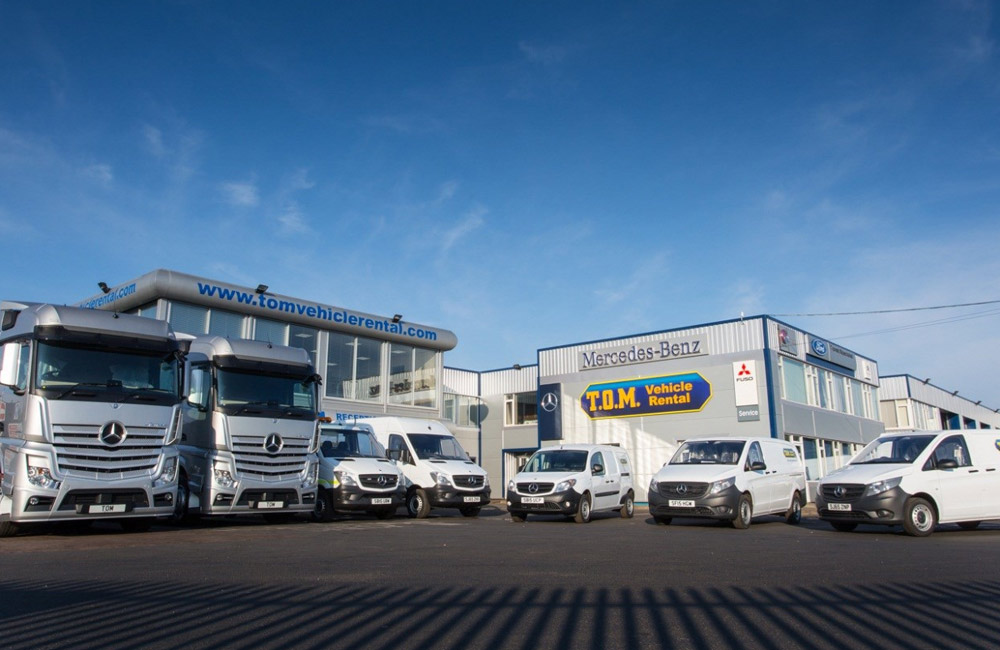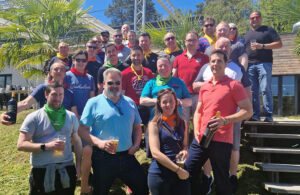Clyde Space, the pioneering company which designed and manufactured Scotland’s first satellite, today (Wednesday) announced it is opening its first subsidiary company in the United States.
As First Minister Nicola Sturgeon visited the company’s Glasgow headquarters today (Wednesday), CEO Craig Clark also revealed that to meet rising demand for the company’s pace-setting products, it has increased its current manufacturing capacity by creating an additional 2500 square feet ‘clean room’ for building and testing satellites.
Ms Sturgeon said: “Clyde Space is a great example of an innovative Scottish company expanding internationally and, with financial support from Scottish Enterprise, committed to creating new jobs in Glasgow.
“This announcement by Clyde Space clearly demonstrates Scotland’s growing influence in the space technology field.
“Our cost effective and supportive business environment, strong and highly skilled workforce and world-class universities are not only enabling the development of Scottish companies but also attracting business from leading names in the space technology industry like NASA and MIT.
“The spacecraft sector showcases Scotland’s scientific and engineering excellence and enhances our global reputation for research, design and innovation.”
Craig said: “Our American customers have been asking us to open in the USA for a number of years and we see huge opportunities there both in commercial space activity and also in the defence sector. Over 90% of our sales are exported and it is the logical move for our first investment overseas.
“About 40% of our business already comes from the USA through the supply of sub-systems to organisations such as US data company SPIRE Global, MIT (Massachusetts Institute of Technology), NASA and the US Air Force.
“We also supply full spacecraft to the University of North Carolina Wilmington. Establishing a US company will put us in a position to attract more work from the American government including in areas where we are currently restricted.
“At first, the US company will concentrate on developing sales but we expect to quickly establish a manufacturing base replicating what we have in Glasgow; the emphasis being a US facility, staffed by US citizens, producing ‘made in USA’ spacecraft.
“In the past we have looked at joint ventures in the USA but our analysis has indicated that expanding on our own is the best option. We are using Scottish, UK and USA government help to select the correct location.”
The acquisition of more space at its current headquarters follows the company’s most successful year and comes just 13 months after moving from its previous base because it was too small.
In just over a year the Clyde Space team has doubled to 75 staff and that is expected to increase to 100 this year. The recruitment will bolster spacecraft development, manufacturing, business development and back-office functions.
An average of four spacecraft a month are being produced in the current ‘clean room’, a number that is expected to increase rapidly in the next 12-18 months.
Craig said the demand for mass-produced spacecraft and systems was driving the company’s rapid growth and is making Clyde Space a global leader in the design and manufacture of CubeSats.
He also announced the company’s performance in the current year continues the growth seen in recent years. With revenue this year to date already exceeding the total income of last year, turnover to the end of April 2016 is expected to be $8m, a fivefold increase over three years.
Craig said: “I often come across people who see the space industry as not a serious business market, more suited to scientists and technology geeks. However, with the space market showing sustained growth at almost 10% over the past few years, and our specific market segment of small satellites growing at close to 40% per year, it’s clear there is an excellent business case.
“We are creating multiple high-skilled jobs here in Glasgow – I think the space industry is a hidden gem in the UK’s economy and I’m delighted we’ve managed to bring the space industry to Scotland.”
Clyde Space produces small satellite, nanosatellite and CubeSat systems – fully functional satellites that ‘piggy-back’ on other launches to minimise costs and boost the commercial viability of space research.
Since moving into its current base just over a year ago, £500,000 has been invested in space environment test facilities but demand for its products is already outstripping capacity.
Current recruiting has been part-funded by a Regional Selective Assistance Grant of £480,000 from Scottish Enterprise.
Craig said: “Due to the need for highly skilled staff to service our customer needs, it can take time for us to recruit and embed new members of the team. Given how fast our market and company are growing, we really need to recruit ahead of time.
“Scottish Enterprise have always been excellent support to Clyde Space and we were delighted with the RSA grant which is a great help to our continued growth.”
Lena Wilson, chief executive of Scottish Enterprise, said: “Clyde Space are to be congratulated on the phenomenal growth they’ve achieved in recent years. We are pleased to be supporting the company’s latest expansion in Glasgow with a Regional Selective Assistance grant and look forward to working closely with them as they expand further into the US.”
Other recent orders won by Clyde Space include a £1million deal to build three CubeSats for American global broadcast company Outernet Inc in an international partnership funded by the UK Space Agency and a prestigious order from the Belgian Institute for Space Aeronomy.
UKube-1, Scotland’s first satellite, was designed and built by Clyde Space in Glasgow. It was launched from Baikonur Cosmodrome, Kazakhstan, in July 2014. UKube-1 recently completed its primary mission for the UK Space Agency and now continues with its next phase of operations.
Clyde Space is backed by private equity specialists Coralinn LLP, the investment vehicle of leading Scottish entrepreneur Hugh Stewart OBE, and Nevis Capital owned by John and James Pirrie.
Hugh Stewart said: “Clyde Space has been an incredible success and has grown its market substantially over the past few years. It is tremendous credit to the management team that Craig has put together at Clyde Space that they have done this from their Scottish base. The quality of graduates and people together with the support from local agencies have all contributed to the company achieving its goals.
“The move to the USA is the logical development and will be an exciting move for everyone involved. The market opportunities for the company are huge.”

